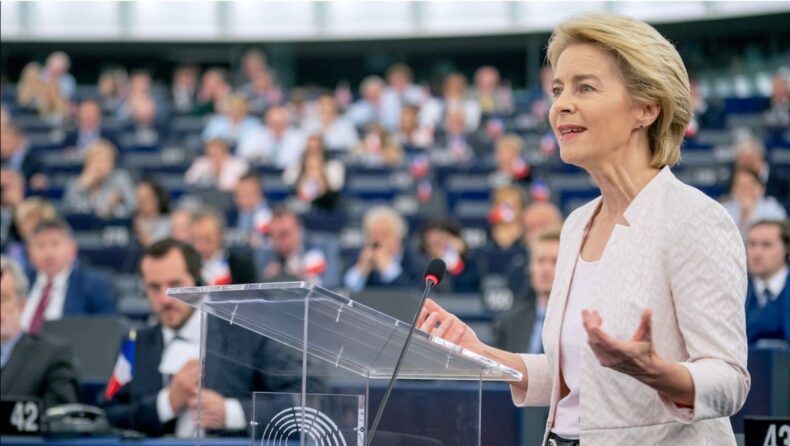
EU plan for new penalties for Moscow aimed at providing Ukraine with package of new financial assistance.
EU agreed on Monday to ban most Russian oil imports into the bloc by the end of the year as part of new sanctions imposed on Moscow at a summit aimed at assisting Ukraine with a long-delayed package of new financial aid.
The embargo applies to Russian oil imported by sea, with a temporary exemption for pipeline imports. It was a move that was critical in bringing landlocked Hungary on board with a decision that required consensus.
According to EU Council President Charles Michel, the agreement covers more than two-thirds of Russia’s oil imports. The EU’s executive branch chief, Ursula Von der Leyen, stated that the punitive move will “effectively cut around 90% of Russian oil imports to the EU by the end of the year.”
Leaders also agreed to provide Ukraine with $9.7 billion in aid to help the war-torn country’s economy, according to Michel. It was unclear whether the funds would be in the form of grants or loans.
Individuals’ assets will get frozen and they will be barred from travelling, while Russia’s largest bank, Sberbank, will get barred from using SWIFT, the major global financial transfer system from which the EU previously barred several smaller Russian banks. Three major Russian state-owned broadcasters will get barred from distributing their content in the European Union.
“We want to stop Russia’s war machine. More than ever it’s important to show that we are able to be strong, that we are able to be firm, that we are able to be tough,” Michel said.
EU Negotiating with Hungry:
The EU had already imposed five rounds of sanctions on Russia for its involvement in the conflict. It has individually targeted over 1,000 people which include Russian President Vladimir Putin. His top government officials, as well as pro-Kremlin oligarchs, banks, the coal sector are also in the list.
However, the sixth package of measures against Russia, announced on May 4, had been delayed. It was due to the concerns about oil supplies.
The impasse embarrassed the EU, forcing it to scale back its plans to break Hungary’s resistance. When European Commission President Ursula von der Leyen first proposed the package, the goal was to eliminate crude oil imports within six months and refined products by the end of the year.
Hungarian Prime Minister Viktor Orban has stated he will only support the new sanctions if his country’s oil supply security is ensured. Hungary imports more than 60% of its oil from Russia, relying on crude delivered via the Soviet-era Druzhba pipeline.
Hungary led a group of EU countries concerned about the impact of the oil embargo on their economies. The list also include Slovakia, the Czech Republic, and Bulgaria. Hungary is heavily reliant on Russian energy and cannot afford to turn off the taps. Hungary imports 85 percent of its natural gas from Russia, in addition to its need for Russian oil.
Orban had been adamant upon arriving in Brussels that a deal was not in the works. He is emphasizing that Hungary needed to secure its energy supply.
The EU imports approximately 40% of its natural gas and 25% of its oil from Russia. Disagreements over the issue exposed the limits of the 27-nation trading bloc’s ambitions.
Ukraine urge to end arguments:
Zelenskyy urged leaders to end “internal arguments that only prompt Russia to put more and more pressure on the entire Europe” in his 10-minute video address.
He stated that the sanctions must “be agreed upon, and it must be effective, including (on) oil,” so that Moscow “pays the price for what it is doing against Ukraine and the rest of Europe.” Only then, according to Zelenskyy, will Russia be forced to “start seeking peace.”
It was not the first time he asked EU to target Russia’s lucrative energy sector. It will deprive Moscow of billions of dollars in supply payments every day.
Read More- As Russia china ties deepen, EU signals oil embargo ‘In Days’













